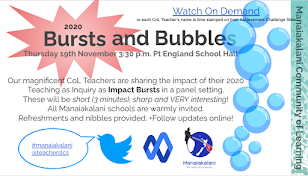Since 2021, my inquiry focus has been on improving teacher practice and raising student achievement in Mathematics. Over the past years, the Maths achievement data has been consistently concerning across many Manaiakalani schools at all year levels. Furthermore, the issue of students underperforming in math has captured national attention.
At the start of the year, I discovered that almost 90% of our new Y3 students were working below and well below their expected levels in mathematics. Their Term 1 PAT results confirmed the data I collected during other summative and formative assessments. This group of students became my target group, or I prefer to call them my control group, as I always strive to deliver the best teaching to all students.
After analysing the school-wide T1 PAT results, I engaged in several professional conversations with my school leaders and teachers. We decided to adopt a more data-informed approach and redesigned and restructured our maths programmes across all year levels. We ensured a well-rounded focus on both Number and Strand, employing an integrated curriculum and fostering student agency.
I’ve been actively involved in supporting my school and other COL teachers by working on understanding various assessments, analyzing and using data for more effective planning.
I've supported a number of teachers and teams by discussing and collaboratively reviewing their maths programmes, by selecting the best resources for teaching different concepts, compiling and sharing practical resources, for example, maths-integrated Matariki resources for L1 to 4 of the curriculum, by observing lessons, providing feedback, unpacking it and planning next steps.
To share my expertise and passion for this subject, I provided in-class support by both modeling and co-teaching maths lessons.
This year, I’ve had the privilege of working as part of the Maths design group, with the goal of launching a new maths PLD program next year. I've already volunteered to pilot this program in Term 1. I really hope that this new Manaiakalani initiative will support our teachers in growing their capability and love for teaching mathematics.
To conclude my presentation, I’d like to share the end-of-year Maths PAT results of my targeted Year 3 cohort (Y3 learners in my class achieved 18.6 gain). We filtered the data analysis by "same students only" to compare apples to apples. The group achieved a gain of 17 points, compared to the national average of 9.2. This difference translates to nearly 2 years of progress and means that, with my team, we successfully accelerated their learning in Mathematics.













